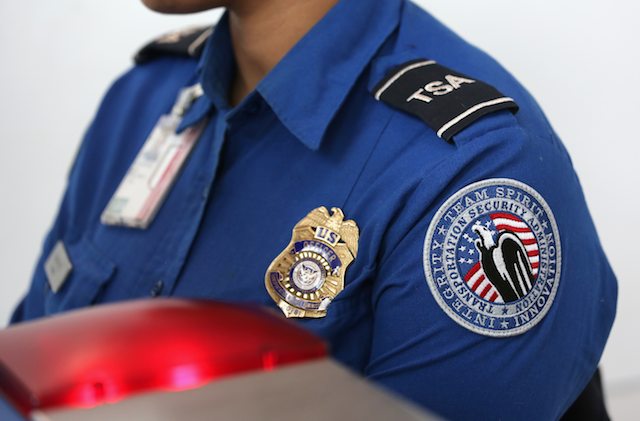Justice Department Updates Racial Profiling Rules--With Big Exceptions

Attorney General Eric Holder is set to announce new anti-racial profiling regulations today which will expand characteristics that federal law enforcement are barred from profiling to include gender, national origin, religion, sexual orientation and gender identity. The guidance applies to federal law enforcement and state and local police engaged in federal law-enforcement duties, but includes broad exceptions. Under the pretext of national security concerns, the Department of Homeland Security, which includes the Transportation Security Administration (TSA) and Customs and Border Patrol (CBP), will still be allowed to engage in profiling in the course of airport screening work and while engaged in activities "in the vicinity of the border and ICE enforcement ports of entry," according to the regulations, CBS reported.
The guidance is an update from the original, released in 2003 under then-Attorney General John Ashcroft, which only prohibited profiling by race and ethnicity. The updated guidance preserves exceptions for the Department of Homeland Security included in the 2003 policy.
Holder heralded the new regulations last week in a speech in Atlanta, saying that they would "help end racial profiling."
"Profiling by law enforcement is not only wrong, it is profoundly misguided and ineffective, because it wastes precious resources and undermines the public trust," Holder said ahead of the release of the regulations, MSNBC reported.
"Particularly in light of certain recent incidents we've seen at the local level--and the widespread concern about trust in the criminal justice process which so many have raised throughout the nation--it's imperative that we take every possible action to institute strong and sound policing practices," Holder said.
Such wide exceptions for the Department of Homeland Security do "little to nothing to protect some minority populations that have to endure unfair targeting by law enforcement every day," Laura Murphy, legislative office director at ACLU Washington, said in a statement. The ACLU praised the gains but criticized the loopholes, such that altogether, "this Guidance is not an adequate response to the crisis of racial profiling in America."
"It's baffling that even as the government recognizes that bias-based policing is patently unacceptable, it gives a green light for the FBI, TSA, and CBP to profile racial, religious and other minorities at or in the vicinity of the border and in certain national security contexts, and does not apply the Guidance to most state and local law enforcement," Murphy said.
